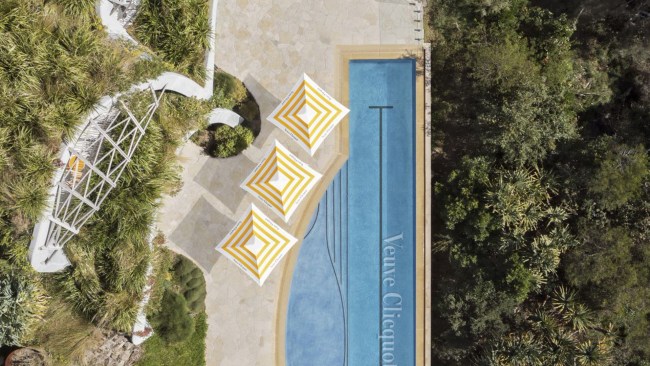Heirs and graces of a sumptuous Auckland retreat
IT is a few weeks before Christmas and Gloria Poupard-Walbridge has been decking the halls of Cotter House with much more than plain old holly.

IT is a few weeks before Christmas and Gloria Poupard-Walbridge has been decking the halls of Cotter House with much more than plain old holly.
Gilded angels are trumpeting, tinselled reindeers are peeking from behind the sofas. There are merry candles, baubles and bells; decorative stockings hang in plump bunches, waiting to be stuffed with Santa's finest treats.
In lesser hands, and in more modest surrounds, it could all be irredeemably kitsch. But the Colombian-born and French-raised Poupard-Walbridge is chatelaine of what is arguably Auckland's grandest boutique hotel and what should be crass about her Christmas universe is somehow chic.
The two-storey Cotter House, she tells me, is a smaller triple-brick version of Sydney's Kirribilli House, the prime ministerial mansion that commands a suitably grand site overlooking the harbour. Cotter House, in Auckland's southeast suburb of Remuera, was built in 1847 for Joseph Newman, an English land-baron. He was a teetotaller and president of the local temperance society, but the demon drink got him in the end. Poupard-Walbridge shows me a copy of Newman's obituary in The New Zealand Herald, January 5, 1892, which states "he received serious injury in 1890 when a hoarding advertising whisky hit him on the head ... he never completely rallied from the shock".
Poupard-Walbridge regales such tales with great relish and she is passionate about the architectural integrity and provenance of heritage-listed Cotter House, which she describes as "pure Regency" and "Auckland's fifth-oldest house". Its name comes from the Cotter family, in residence from 1882 to 1926; they subdivided what had been a pastoral estate into small blocks in today's Rumuera.
The former wife of a French diplomat, Poupard-Walbridge has rescued the house from a rather derelict state. She has layered the main salons and the two guestrooms and two suites with objets-d'art, exquisite bibelots, masses of decorative mirrors and myriad original paintings collected during embassy postings in South America.
The high-ceilinged suites are particularly sumptuous affairs featuring big beds piled with pillows, bolsters and cushions, looming armoires and exotic antique furniture (behold an 18th-century Bolivian carved writing desk or an Austrian brass bedhead). Ensuites gleam with marble and are stocked with quality toiletries and veritable alps of towels.
The hand-embroidered bed linen is so soft you'd imagine Poupard-Walbridge has scoured French provincial markets for heritage sheets and pillowcases (and she has). Tall windows let in abundant natural light, fresh flowers and chocolates are generously replenished, and there are modern contrivances such as WiFi coverage throughout the house and cable television in all guestrooms; laptops and iPod docking stations are yours upon request.
Breakfast is a silver-service spread (even the boiled eggs arrive in polished silver coddlers and cups); the juice is freshly squeezed, the organic muesli is home-made and hot dishes range from scrambled eggs with smoked salmon to eggs benedict on a bed of spinach.
The energetic chatelaine has been up since sparrow's-yawn baking croissants and pastries. There is a relaxed timetable: any time after 8.30am is fine for the morning meal and Poupard-Walbridge seems relaxed about letting it lapse to a late brunch. Afternoon tea -- with more delectable home-baked pastries, lemon tarts, shiny pots of tea and coffee -- appears in the drawing room between 3pm and 5pm. And, unless you wish to join other guests, tables are individually set, including on the covered veranda overlooking the garden insummer.
"Please feel free to use the crystal bell located on the front desk when you need me," writes the mistress of the manor in her welcome notes. And she means it: she's most likely to emerge from her kitchen, baking tray in hand. This is hospitality of a high order with an agreeable soupcon of eccentricity.
Susan Kurosawa was a guest of Tourism New Zealand.


